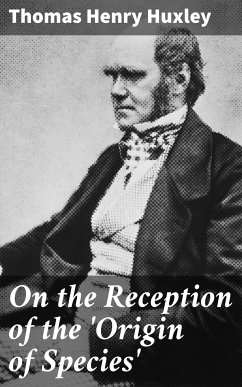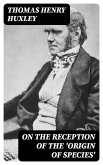In "On the Reception of the 'Origin of Species'," Thomas Henry Huxley explores the profound impact that Charles Darwin'Äôs groundbreaking work had on both scientific thought and public perception in the 19th century. Huxley employs a clear and incisive literary style, combining rigorous scientific analysis with a compelling narrative that situates Darwin'Äôs theories within the broader context of biological discourse and societal values of the time. Through meticulous examination of reactions to Darwin's ideas, Huxley articulates the controversies and debates that surrounded the evolution of species, highlighting both scientific skepticism and the resistance from religious institutions. Huxley, often referred to as 'Darwin's Bulldog' for his staunch defense of evolutionary theory, was not only a prominent biologist but also an advocate for scientific education. His deep understanding of the scientific method and his remarkable ability to communicate complex ideas stemmed from his background in comparative anatomy and paleontology. This book reflects his commitment to advocating for Darwin's ideas, while also showcasing Huxley'Äôs own position within the scientific community as a mediator between emerging scientific thought and established belief systems. Readers will find this work to be an essential resource for understanding the cultural and scientific landscape of the era. Huxley'Äôs thoughtful examination of Darwin'Äôs reception serves as a compelling invitation to reflect on the ongoing debates surrounding evolution and science today. This is a must-read for anyone interested in the evolution of scientific thought and its impact on society.
Dieser Download kann aus rechtlichen Gründen nur mit Rechnungsadresse in A, B, BG, CY, CZ, D, DK, EW, E, FIN, F, GR, H, IRL, I, LT, L, LR, M, NL, PL, P, R, S, SLO, SK ausgeliefert werden.









